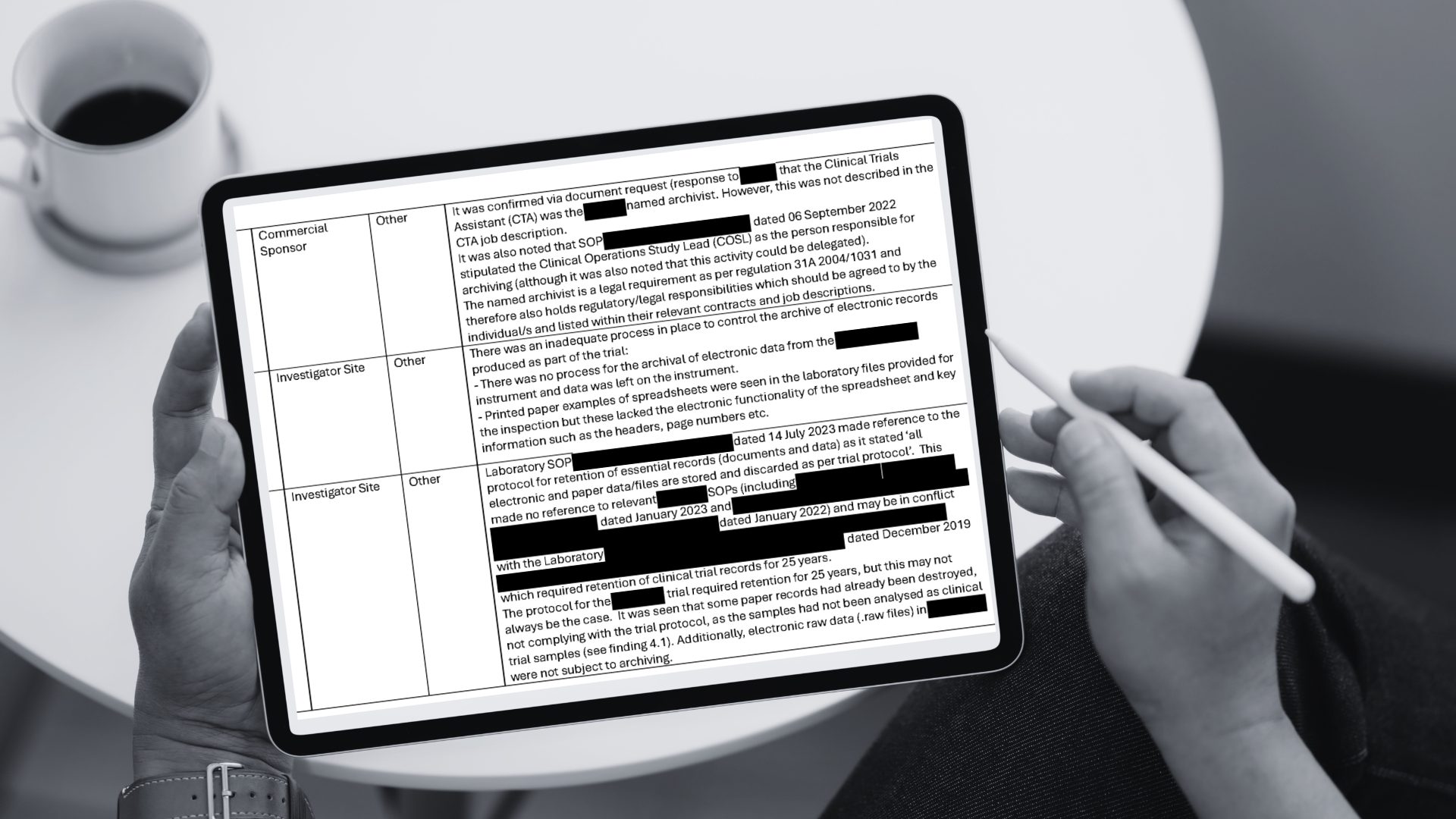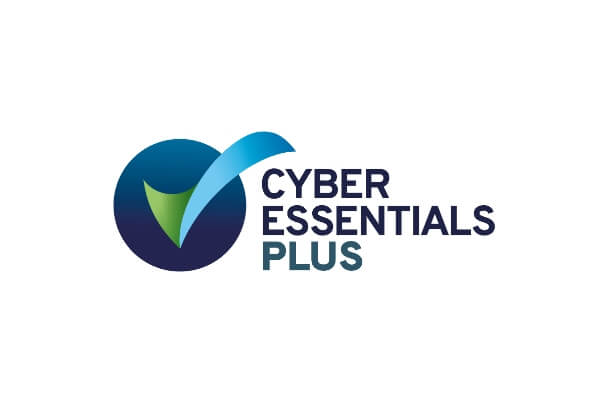MHRA Inspection Findings: Key Issues in Clinical Trial Data & Archiving Compliance
 The UK Medicines and Healthcare products Regulatory Agency (MHRA) conducts regular inspections of organisations involved in clinical trials to ensure compliance with Good Clinical Practice (GCP) guidelines. A recent Freedom of Information (FOI) request by Arkivum has revealed common inspection findings related to archives from 2016 to 2023. Over this period, a total of 75 findings were identified across 39 companies, highlighting areas for improvement in the management and preservation of clinical trial data. This blog post analyses these findings to help sponsors and other stakeholders improve their compliance practices.
The UK Medicines and Healthcare products Regulatory Agency (MHRA) conducts regular inspections of organisations involved in clinical trials to ensure compliance with Good Clinical Practice (GCP) guidelines. A recent Freedom of Information (FOI) request by Arkivum has revealed common inspection findings related to archives from 2016 to 2023. Over this period, a total of 75 findings were identified across 39 companies, highlighting areas for improvement in the management and preservation of clinical trial data. This blog post analyses these findings to help sponsors and other stakeholders improve their compliance practices.
Key Compliance Findings from MHRA Inspections
1. Inadequate Archiving Facilities and Practices
One of the most concerning findings was the use of inappropriate physical storage facilities for Trial Master Files (TMFs). In one case, a commercial sponsor was using a converted barn on their business complex for storing TMFs. The MHRA identified this as a major deficiency because no documented assessment of the facility’s suitability was conducted prior to use. Access to the storage area was not restricted to authorised personnel, with other businesses in the complex having access to the same space. Perhaps most alarmingly, TMF boxes were not sealed to prevent tampering, and no tracking system was in place for documents removed from or returned to the archive. The inspection also revealed a complete lack of ongoing oversight to ensure document preservation.
This highlights the importance of establishing appropriate measures for archived clinical trial documents. While this particular issue involved physical documents, the same principles apply as organisations move towards digital record management. Digital archives must be maintained, with strict access controls limiting entry to authorised personnel and comprehensive logging to ensure compliance. Archiving isn’t just about storage; it’s about safeguarding the integrity and long-term accessibility of critical research documentation.
2. Lack of Formalised Archiving Roles and Responsibilities
During the inspection, multiple organisations were found to lack a named archivist, with the role not being formally documented in job descriptions. In one instance, it was noted that a Clinical Operations Study Lead (COSL) was identified as responsible for archiving. This violates Regulation 31A(9) of UK Statutory Instrument 2004/1031, which requires a designated individual responsible for archiving TMF documents. Without clear responsibility assignments, there’s increased risk of documentation gaps and inconsistent archiving practices. I produced a blog last year titled Why You Need a GxP Archivist in Your Organisation, which provides more information on the role.

3. Insufficient Electronic Document Management
The inspections revealed large gaps in electronic archiving processes. Many organisations had no procedures for archiving in electronic systems that are used as TMF repositories. In several cases, electronic TMFs were not properly archived at study completion, leaving them vulnerable to unauthorised modifications.
In one particularly concerning instance, inspectors found documents with modification dates years after the Clinical Study Report (CSR) was published, indicating inadequate access controls and archiving procedures. This suggests that organisations weren’t treating electronic documents with the same rigor as physical ones, despite their equal importance in regulatory compliance.
Other issues included a lack of controls to prevent unauthorised document modifications after archiving and an absence of backup for electronically archived data. Many systems had no functionality to prevent post-archive changes, creating significant data integrity risks. Organisations often failed to assess the suitability of electronic systems for long-term archiving, potentially compromising future accessibility of crucial trial documentation. It’s important to remember that validation alone does not guarantee a system is suitable for long-term archiving.
4. Missing Essential Documentation
Inspectors found that archived TMFs often lacked documents necessary for trial reconstruction. These included Interactive Voice Recognition System (IVRS) confirmation emails, reports confirming receipt of Investigational Medicinal Product (IMP) kits at sites, database lock documentation, and Interactive Response Technology (IRT) activation emails.
The absence of these documents represents a significant compliance risk, as they are essential for demonstrating the integrity of clinical trial processes. Organisations must ensure that their archiving procedures account for all essential documentation, not just the most obvious trial documents.
5. Addressing Long-Term Digital Archiving Challenges
The inspections identified a lack of processes for ensuring the long-term accessibility of electronic documents. Organisations had no procedures for preserving documents archived on CDs, insufficient planning for format obsolescence, and no contingency plans for technological changes affecting data accessibility. In one of the inspections there was an issue with compliance as metadata files were stored on CDs and were not in a readable format.
This short-sighted approach to electronic archiving fails to account for the rapid pace of technological change. Today’s common formats may become unreadable in a decade, potentially rendering valuable trial data inaccessible. Organisations must develop comprehensive strategies for maintaining the accessibility of electronic records throughout their required retention period, which may extend for decades in some cases.
6. Incomplete TMF Management Plans
Several organisations had inadequate TMF management plans. These plans lacked clear procedures for dealing with missing documentation during TMF preparation and provided insufficient detail on eTMF file and folder structure. There was also a lack of procedures for archiving eTMFs and no process for ensuring eTMFs were set to read-only status within the required timeframe.
The findings from 2021 and 2023 revealed that while some organisations prioritise archiving TMF documentation, they frequently overlook the broader spectrum of data that should accompany it, including lab data, statistical data, raw data files, spreadsheets, and other essential supporting materials.
A comprehensive TMF management plan is essential for ensuring the completeness and integrity of trial documentation. It should provide clear guidance on preparing, maintaining, and archiving the TMF, including procedures for handling exceptional circumstances like missing documentation. Without such a plan, organisations risk inconsistent practices and potential compliance issues.
Conclusion
The MHRA inspection findings highlight the importance of data and records management in clinical trials. Organisations should view these findings as an opportunity to strengthen their archiving practices, ensure regulatory compliance, and maintain the integrity of clinical trial data. By proactively addressing these common challenges, sites and sponsors can be better prepared for future inspections. For further guidance on inspection readiness, MHRA offers an excellent blog with practical tips .
If you would like request access to the full Inspection Findings document, please visit this page.
Further Information to Support Compliance
Download our eBook: A Complete Guide to Data Standards for Clinical Trial Data which simplifies key regulatory frameworks established by FDA, EMA, and MHRA

Anthony Wells
Anthony assumed the role of Product Marketing Manager at Arkivum in 2024, leveraging over a decade of experience of product marketing management in the technology sector. Proficient in developing and executing marketing strategies, Anthony is also experienced in product lifecycle management, from inception through to discontinuation.
Get in touch
Interested in finding out more? Click the link below to arrange a time with one of our experienced team members.
Book a demo